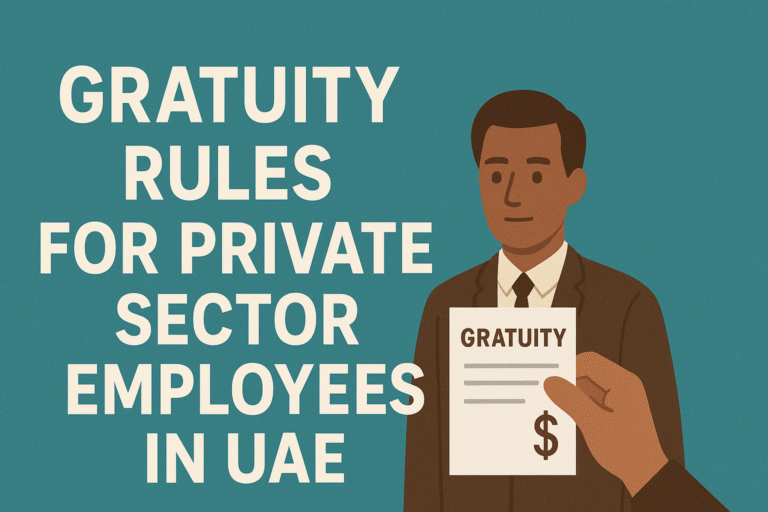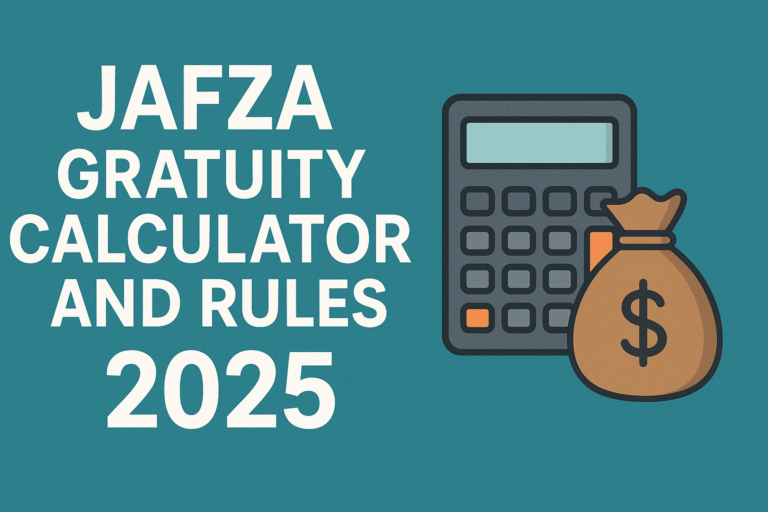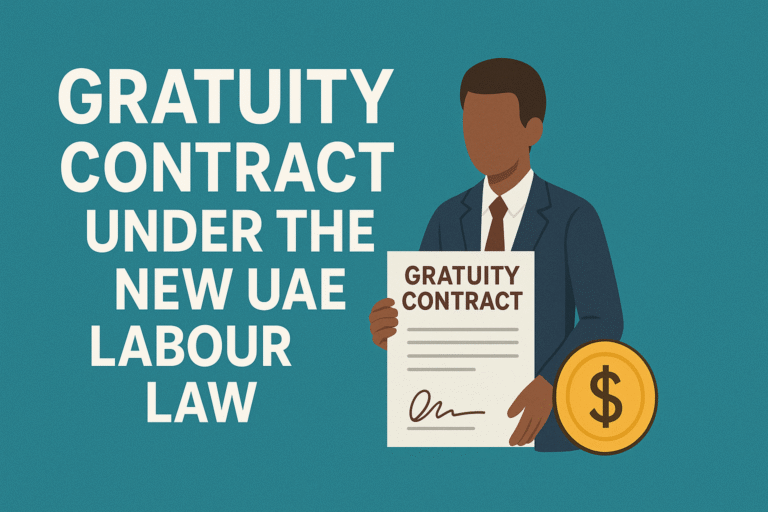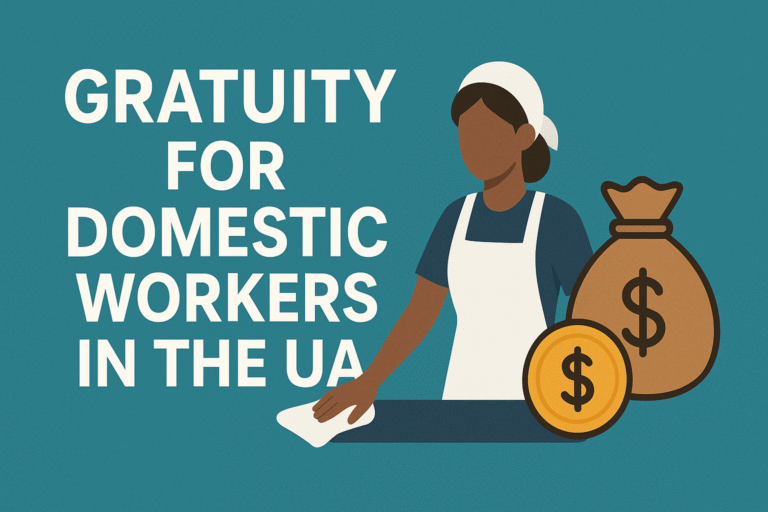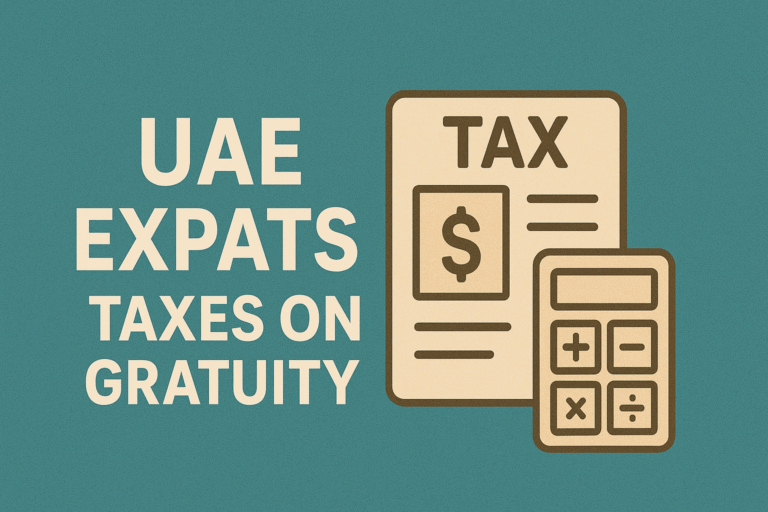Can You Get Gratuity for a Commission-Based Job in the UAE?
Commission-based jobs are common in the UAE, especially in industries like real estate, sales, and recruitment. But when it comes to end-of-service gratuity, many employees in these roles are unsure where they stand. Does the law treat commissions as part of your salary? Or are you left out of the gratuity system entirely? The answer depends on how your earnings are defined in your labour contract and how consistently you can prove them. This is one of the most common and often confusing questions for employees in the United Arab Emirates. Let’s break down what the updated UAE labour law says, what exceptions exist, and how you can protect your rights.
What the UAE Labour Law Says about Gratuity?
UAE labour law defines gratuity as payable only on the basic salary, not on commissions or bonuses—unless those are explicitly part of your contractual basic wage. That changed in the updated Federal Decree-Law No. 33 of 2021, effective February 2, 2022. Now, commissions and bonuses typically don’t count toward the basic salary used in gratuity calculations.
Court Rulings and Exceptions
Previous court rulings occasionally treated consistent commissions as part of the salary. You might still convince a court if you have solid documentation showing commissions were treated as part of your salary over time. The determining factor is how your commission is defined and structured within your legally binding employment contract.
Is Your Commission Part of Your “Basic Salary”?
The law defines the ‘wage’ as the basic wage plus any other allowances or payments made to the worker in return for their labour. For gratuity calculation, the law specifically refers to the last-paid ‘basic wage’. So, the entire debate hinges on a simple question: Is your commission considered part of your basic wage? Here’s how to determine this:
The Employment Contract is King
The Ministry of Human Resources and Emiratisation (MOHRE) considers the employment contract registered with them as the primary source of truth. How your salary is broken down in this document is critical.
Consistency and Regularity
Do you receive commission payments consistently every month? Is it a fundamental part of your regular income rather than a one-off bonus? UAE courts have, in some cases, considered regular and consistent commission payments as part of the total wage on which gratuity should be calculated, even if the contract is ambiguous. However, relying on this interpretation without a clear contract is a significant risk.
What the Law Says: Gratuity Calculation Basics
The gratuity calculation for both regular employees and commission roles are defined as followed:
Regular Employees
According to Article 51 of the UAE Labour Law, the end-of-service gratuity for a full-time employee who has completed at least one year of continuous service is calculated as follows:
The total gratuity payment shall not exceed the wage of two years. The key phrase here, once again, is ‘basic wage’.
Commission-only roles
Article 23 allows calculating your “basic wage” as an average of your commission earnings over the last six months. That average becomes the basis for gratuity, annual leave, and other entitlements—if you’re full-time or on a piecemeal (commission-based) working model.
If you want to see exactly how much you might be entitled to, try our UAE Gratuity Calculator—it follows the latest MOHRE rules and works for both salary-based and commission-based jobs.
How to Protect Your Gratuity
To avoid disappointment and disputes at the end of your service, be proactive from day one.
Conclusion
Commission-based workers in the UAE can qualify for gratuity, but it’s not automatic. The deciding factor is how your earnings are defined in your labour contract and whether you can prove they were treated as salary. If your role is entirely commission-driven, the law provides a way to calculate gratuity using your average earnings. The safest approach is to ensure your contract is clear, your payment records are complete, and you seek legal advice early if disputes arise. In a market where commission-based jobs are common, knowing your rights can make the difference between walking away empty-handed and receiving what you’re owed.


